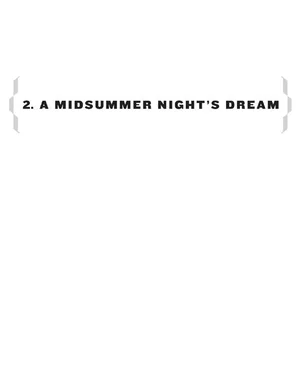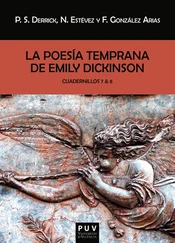Emily Mandel - Station Eleven
Здесь есть возможность читать онлайн «Emily Mandel - Station Eleven» весь текст электронной книги совершенно бесплатно (целиком полную версию без сокращений). В некоторых случаях можно слушать аудио, скачать через торрент в формате fb2 и присутствует краткое содержание. Год выпуска: 2014, ISBN: 2014, Издательство: Knopf, Жанр: Старинная литература, на английском языке. Описание произведения, (предисловие) а так же отзывы посетителей доступны на портале библиотеки ЛибКат.
- Название:Station Eleven
- Автор:
- Издательство:Knopf
- Жанр:
- Год:2014
- ISBN:9780385353311
- Рейтинг книги:4 / 5. Голосов: 1
-
Избранное:Добавить в избранное
- Отзывы:
-
Ваша оценка:
- 80
- 1
- 2
- 3
- 4
- 5
Station Eleven: краткое содержание, описание и аннотация
Предлагаем к чтению аннотацию, описание, краткое содержание или предисловие (зависит от того, что написал сам автор книги «Station Eleven»). Если вы не нашли необходимую информацию о книге — напишите в комментариях, мы постараемся отыскать её.
Station Eleven — читать онлайн бесплатно полную книгу (весь текст) целиком
Ниже представлен текст книги, разбитый по страницам. Система сохранения места последней прочитанной страницы, позволяет с удобством читать онлайн бесплатно книгу «Station Eleven», без необходимости каждый раз заново искать на чём Вы остановились. Поставьте закладку, и сможете в любой момент перейти на страницу, на которой закончили чтение.
Интервал:
Закладка:
“Is there anything to the south, though?”
August shrugged. “It’s a lot of coastline,” he said. “There’s got to be something between here and Chicago, wouldn’t you think?”
“They could’ve gone inland.”
“It’s possible, but they know we never go into the interior. They’d only go inland if they didn’t want to see us again, and why would they …” He shook his head. None of it made sense.
“They had a girl,” Kirsten said. “Annabel.”
“That was Charlie’s sister’s name.”
“Places,” the conductor said, and August left to join the strings.
11
WHAT WAS LOST IN THE COLLAPSE:almost everything, almost everyone, but there is still such beauty. Twilight in the altered world, a performance of A Midsummer Night’s Dream in a parking lot in the mysteriously named town of St. Deborah by the Water, Lake Michigan shining a half mile away. Kirsten as Titania, a crown of flowers on her close-cropped hair, the jagged scar on her cheekbone half-erased by candlelight. The audience is silent. Sayid, circling her in a tuxedo that Kirsten found in a dead man’s closet near the town of East Jordan: “Tarry, rash wanton. Am I not thy lord?”
“Then I must be thy lady.” Lines of a play written in 1594, the year London’s theaters reopened after two seasons of plague. Or written possibly a year later, in 1595, a year before the death of Shakespeare’s only son. Some centuries later on a distant continent, Kirsten moves across the stage in a cloud of painted fabric, half in rage, half in love. She wears a wedding dress that she scavenged from a house near New Petoskey, the chiffon and silk streaked with shades of blue from a child’s watercolor kit.
“But with thy brawls,” she continues, “thou hast disturbed our sport.” She never feels more alive than at these moments. When onstage she fears nothing. “Therefore the winds, piping to us in vain, as in revenge, have sucked up from the sea contagious fogs.…”
Pestilential , a note in the text explains, next to the word contagious , in Kirsten’s favorite of the three versions of the text that the Symphony carries. Shakespeare was the third born to his parents, but the first to survive infancy. Four of his siblings died young. His son, Hamnet, died at eleven and left behind a twin. Plague closed the theaters again and again, death flickering over the landscape. And now in a twilight once more lit by candles, the age of electricity having come and gone, Titania turns to face her fairy king. “Therefore the moon, the governess of floods, pale in her anger, washes all the air, that rheumatic diseases do abound.”
Oberon watches her with his entourage of fairies. Titania speaks as if to herself now, Oberon forgotten. Her voice carries high and clear over the silent audience, over the string section waiting for their cue on stage left. “And through this distemperature, we see the seasons alter.”
All three caravans of the Traveling Symphony are labeled as such, THE TRAVELING SYMPHONY lettered in white on both sides, but the lead caravan carries an additional line of text: Because survival is insufficient .
12
THE AUDIENCE ROSEfor a standing ovation. Kirsten stood in the state of suspension that always came over her at the end of performances, a sense of having flown very high and landed incompletely, her soul pulling upward out of her chest. A man in the front row had tears in his eyes. In the back row, another man whom she’d noticed earlier—he alone had sat on a chair, the chair carried up from the gas station by a woman—stepped forward and raised his hands over his head as he passed through the front row. The applause faded.
“My people,” he said. “Please, be seated.” He was tall, in his late twenties or early thirties, with blond hair to his shoulders and a beard. He stepped over the half circle of candles to stand among the actors. The dog who’d been lying by the front row sat up at attention.
“What a delight,” he said. “What a marvelous spectacle.” There was something almost familiar in his face, but Kirsten couldn’t place him. Sayid was frowning.
“Thank you,” the man said, to the actors and musicians. “Let us all thank the Traveling Symphony for this beautiful respite from our daily cares.” He was smiling at each of them in turn. The audience applauded again, on cue, but quieter now. “We are blessed,” he said, and as he raised his hands the applause stopped at once. The prophet. “We are blessed to have these musicians and actors in our midst today.” Something in his tone made Kirsten want to run, a suggestion of a trapdoor waiting under every word. “We have been blessed,” he said, “in so many ways, have we not? We are blessed most of all in being alive today. We must ask ourselves, ‘Why? Why were we spared?’ ” He was silent for a moment, scanning the Symphony and the assembled crowd, but no one responded. “I submit,” the prophet said, “that everything that has ever happened on this earth has happened for a reason.”
The conductor was standing by the string section, her hands clasped behind her back. She was very still.
“My people,” the prophet said, “earlier in the day I was contemplating the flu, the great pandemic, and let me ask you this. Have you considered the perfection of the virus?” A ripple of murmurs and gasps moved through the audience, but the prophet raised a hand and they fell silent. “Consider,” he said, “those of you who remember the world before the Georgia Flu, consider the iterations of the illness that preceded it, those trifling outbreaks against which we were immunized as children, the flus of the past. There was the outbreak of 1918, my people, the timing obvious, divine punishment for the waste and slaughter of the First World War. But then, in the decades that followed? The flus came every season, but these were weak, inefficient viruses that struck down only the very old, the very young, and the very sick. And then came a virus like an avenging angel, unsurvivable, a microbe that reduced the population of the fallen world by, what? There were no more statisticians by then, my angels, but shall we say ninety-nine point ninety-nine percent? One person remaining out of every two hundred fifty, three hundred? I submit, my beloved people, that such a perfect agent of death could only be divine. For we have read of such a cleansing of the earth, have we not?”
Kirsten met Dieter’s gaze across the stage. He’d played Theseus. He fiddled nervously with the cufflinks on his shirt.
“The flu,” the prophet said, “the great cleansing that we suffered twenty years ago, that flu was our flood. The light we carry within us is the ark that carried Noah and his people over the face of the terrible waters, and I submit that we were saved”—his voice was rising—“not only to bring the light, to spread the light, but to be the light. We were saved because we are the light. We are the pure.” Sweat ran down Kirsten’s back under the silk of the dress. The dress, she noted absently, didn’t smell very good. When had she last washed it? The prophet was still talking, about faith and light and destiny, divine plans revealed to him in dreams, the preparations they must make for the end of the world—“For it has been revealed to me that the plague of twenty years ago was just the beginning, my angels, only an initial culling of the impure, that last year’s pestilence was but further preview and there will be more cullings, far more cullings to come”—and when his sermon was over he went to the conductor and spoke softly to her. She said something in response, and he stepped back with a laugh.
“I wouldn’t know,” he said. “People come and go.”
Читать дальшеИнтервал:
Закладка:
Похожие книги на «Station Eleven»
Представляем Вашему вниманию похожие книги на «Station Eleven» списком для выбора. Мы отобрали схожую по названию и смыслу литературу в надежде предоставить читателям больше вариантов отыскать новые, интересные, ещё непрочитанные произведения.
Обсуждение, отзывы о книге «Station Eleven» и просто собственные мнения читателей. Оставьте ваши комментарии, напишите, что Вы думаете о произведении, его смысле или главных героях. Укажите что конкретно понравилось, а что нет, и почему Вы так считаете.












